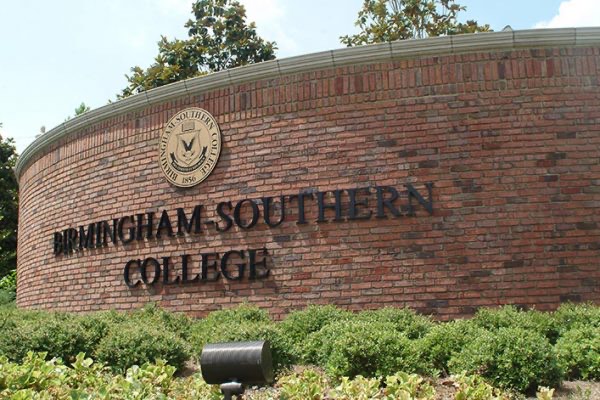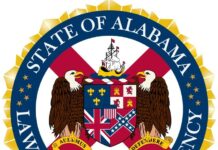BIRMINGHAM, AL (03/26/2024) Birmingham-Southern College will cease operations on May 31, 2024, following an 18-month effort to obtain bridge funding from a $30 million state loan program conceived and enacted to save the 168-year-old, nationally ranked liberal arts institution.
The College Board of Trustees voted unanimously today to close the College after a 2024 bill designed to amend the 2023 legislation that established the loan program failed to win sufficient support in the Alabama House of Representatives.
The BSC community – students, faculty, staff, parents, alumni, and friends – was notified at 1 p.m. today.
“This is a tragic day for the College, our students, our employees, and our alumni,” said Board Chair Rev. Keith D. Thompson’83. “But it is also a terrible day for Birmingham, for the neighborhoods who have surrounded our campus for more than 100 years, and for Alabama.
“Through this challenging year and a half, we have talked a lot about BSC’s more than $90 million annual economic impact on Alabama, with $68 million of that right here in our city,” Thompson added. “But beyond that loss – which is enormous — the loss of a nationally ranked liberal arts college that has contributed so much to this state and to the world – and still had so much to give – is incalculable.”
Daniel B. Coleman, BSC’s 16th president, said the College has exhausted every option to obtain the loan through the Distressed Institutions of Higher Learning Revolving Loan Fund, established by the Alabama Legislature and signed into law by Gov. Kay Ivey in June 2023. The original Act put the State Treasurer in charge of the program, for which BSC met the statutory qualifications. After months of delay, the Treasurer denied the loan in October 2023.
On February 6, the College’s legislative champions – Sen. Jabo Waggoner ’60 and Sen. Rodger Smitherman – introduced a bill to amend the 2023 Act. That bill, which moved the administration of the loan program to the Alabama Commission on Higher Education, added a layer of review to ensure the state’s position, set the loan terms, and specified a time frame for approval or denial, passed the Alabama Senate on March 5.
On March 20, through the efforts of Rep. David Faulkner, the House Ways & Means Education Committee approved a substitute bill that further strengthened the State’s position. Even so, subsequent conversations with House leadership confirmed that the bill did not have enough support to move forward.
Upon receiving that confirmation, the board meeting was scheduled for today. While holding the meeting during the College’s spring break was not ideal, doing so allowed time for trustees to review all options and for those who live outside of Alabama to arrange to be present.
The $30 million set aside in 2023 for the loan program remains unused.
Students First
BSC has already begun planning for students who will be forced to transfer to other institutions. Their BSC scholarships will not follow them, and with housing in short supply at many colleges and universities both in-state and outside Alabama, many will face logistical and financial challenges.
“We are putting students first, and we will do everything we can to help them find the best place to continue their path to graduation,” said Provost Dr. Laura K. Stultz, a 27-year veteran of the College’s science faculty. “We are working with other institutions – including those in the Associated Colleges of the South as well as some in-state colleges and universities — on agreements that will help maximize the transfer of credits to keep them on track.”
Information has been distributed to students who are on spring break this week and will be updated as plans are confirmed. Individual meetings will be scheduled when students return to campus next week.
A small group of seniors who plan to complete their BSC degrees in summer 2024 will be able to complete their course requirements online and/or through agreements with other institutions.
BSC will also offer as much help as possible for employees, almost all of whom will be displaced by May 31, with the rest to follow over the summer. Information has also been distributed to them and meetings will be scheduled in the coming days to provide individualized consultation.
“If you are a college looking for incredible students and faculty, or an employer looking for profoundly loyal employees, you will not find better people than the people on this campus,’ Thompson said. “They are what you hope for whenever you bring in someone new.”
Additional information for alumni, current and prospective students, families, faculty, staff, and friends of the College will be provided via meetings and the BSC web site.
Background on Birmingham-Southern College
Birmingham-Southern College was founded in 1918 through the merger of two Methodist colleges: Southern University, chartered in 1856 in Greensboro, Ala., and Birmingham College, which had opened in 1898 in the still-new industrial city. By 1910, Birmingham College had produced the first of BSC’s six Rhodes Scholars.
Through the last quarter of the 20th century, BSC maintained a steady pace of growth under the leadership of its longest-serving president, Dr. Neal Berte. As he approached retirement in 2004, the BSC endowment stood at $122 million – adequate for its time.
His successor, Dr. David Pollick, believed he could grow the College’s enrollment by 50 percent to 1,800 students through significant capital investments. Pollick oversaw an aggressive building program, adding LEED-certified residence halls, athletic facilities, an admissions welcome center, and a manmade lake, among other projects.
The implementation of these ambitious capital projects – and the assumption of large debt to fund them – coincided with two factors that led to a decade-plus-long financial struggle:
- The crash of the financial markets in 2009, in which BSC sustained a $25 million loss to the value of its endowment.
- The discovery in 2010 of a material error in the budgeting of federal student financial aid, which came to about $5 million per year against a budget of $49 million.
These factors led to millions of dollars in budget cuts, the elimination of five majors and 29 faculty positions, and the suspension of the faculty and staff’s generous retirement match. The crisis triggered an additional $12 million draw on the endowment by the end of the 2009-2010 fiscal year. Pollick resigned in August 2010.
A Wartime President
When Gen. Charles Krulak was named BSC’s 13th president in March 2011, he brought a skill set honed over a 35-year career in the U.S. Marine Corps, including four years on the Joint Chiefs of Staff as Marine Corps Commandant. That experience – which included two tours of duty in Vietnam and numerous commanding roles during times of international conflict – served him well as he tackled the crisis on the Hilltop. By then, BSC was on sanction from its accrediting agency and was deeply in debt.
During his four years, Krulak focused on raising enough operating funds to keep the College afloat. With his Chief of Staff, Linda Flaherty-Goldsmith, he reworked the budget to prevent further cuts to the faculty. When he retired in 2015, he had recruited the largest entering class since 2010, succeeded in moving the College off sanction with its accrediting organization, and, in the eyes of many, had saved the College.
But the endowment had dropped to $53 million by the time of Krulak’s arrival, and fundraising efforts during his years were focused on spendable money. Prior to his arrival, many donors had been asked to liquidate their endowments so the College could continue to operate. Most agreed, with the expectation that BSC would restore those funds when it could.
The College continued to draw too heavily on the endowment without successfully rebuilding what was lost in the financial crash or repaying what was borrowed from the endowment’s corpus. Krulak’s successor, Dr. Ed Leonard, stepped down in June 2016 after just one year, and Linda Flaherty-Goldsmith was announced as president the following day.
During her nearly three years as president, Flaherty-Goldsmith successfully sought out a group of lenders who would buy BSC’s debt from Regions at a deep-enough discount to reduce the overall college debt by $12 million, which reduced annual debt service by nearly $1 million. ServisFirst took the lead and remained a strong partner to the College.
A Plan for Resilience
When Daniel B. Coleman took office as BSC’s 16th president in December 2018, he saw the financial issues through the lens of 30-plus years of experience in the finance industry. Too-high draws on the College endowment to cover operating losses depleted what should be the institution’s most stable resource.
Coleman’s plan called for raising a new endowment large enough to fund at least 20 percent of annual operating costs. To allow time to raise those funds, BSC appealed to state legislators to create a loan fund using a small fraction of a $2.8 billion surplus in the Education Trust Fund. The Alabama Legislature passed SB278 – the Distressed Institutions of Higher Learning Revolving Loan Program Act – with overwhelming bipartisan support. Although she had opposed the plan, Gov. Kay Ivey submitted executive amendments that were accepted by the Legislature with unanimous support in the Senate and a supermajority in the House. Ivey signed the bill on June 16, 2023.
The bill was conceived and written to allow for a $30 million lifeline to the College, providing operating funds for three years during which it could raise an endowment of up to $200 million to ensure its long-term financial stability. In spring 2023, BSC’s Board of Trustees received assurances from legislative leaders supporting a measure to provide bridge funding that, should the bill pass, the College would be positioned to borrow the $30 million in bridge funding required to keep it open.
The College made commitments based on that assurance, including enrolling students and refilling key faculty and staff positions. With more than $45 million in commitments from private donors to the new endowment that would provide long-term stability, BSC publicly launched its fundraising campaign on Saturday, Oct. 14.
The Denial
Although BSC met the qualifications for the loan, provided two proposals in which the State of Alabama would have had first-security position on collateral more than sufficient to back the loan, a detailed plan under which it could achieve financial stability for the long-term and repay the state loan in a timely manner, the State Treasurer denied BSC the loan in a letter dated October 13, postmarked October 16 and delivered on October 18.
That same day, the College filed a lawsuit in Montgomery County Circuit Court to compel that action. The case was dismissed on October 25 due to the Alabama Constitution’s provision of sovereign immunity to state officials.
With support from the City of Birmingham, the North Alabama Conference of the United Methodist Church, and some private donors, the College averted a mid-year closure. However, the future depended on securing the bridge loan from the State.
On November 30, representatives from the College’s Board of Trustees met with the Treasurer to try to move the process forward. In that meeting, first-security position was again offered by BSC. That same day, two members of the Alabama Legislature met with the Treasurer and reiterated the first-security position on collateral valued at more than the requested loan amount. The offer was extended in writing in a letter from Coleman to the Treasurer dated December 8; a letter from the College’s primary creditor, ServisFirst Bank, was attached, attesting to the bank’s willingness to surrender its lien on the campus in exchange for adequate substitute collateral.
In a letter dated December 13, the Treasurer again denied the loan.
On February 6, the College’s legislative champions – Sen. Jabo Waggoner ’60 and Sen. Rodger Smitherman – introduced a bill to amend the 2023 Act. That bill, which moved the administration of the loan program to the Alabama Commission on Higher Education, added a layer of review to ensure the state’s position, set the loan terms, and specified a time frame for approval or denial, passed the Alabama Senate on March 5.
On March 20, through the efforts of Rep. David Faulkner, the House Ways & Means Education Committee approved a substitute bill that further strengthened the State’s position. Even so, subsequent conversations with House leadership confirmed that the bill did not have enough support to move forward.
On March 26, the College’s Board of Trustees voted unanimously to cease operations on May 31, 2024, after 168 years.



















